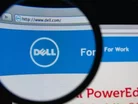Dell's CEO contributes seven tips on how to maximize healthcare events

The annual SXSW Festival wrapped a few weeks ago, but the industry tips generated by this event have resonated with healthcare professionals in a big way. Noteworthy CEOs from various industries gathered together to swap start-up tales, success stories and helpful tricks to avoid the trials they’ve all seemed to experience.
Company leaders from start-up champions like South by Southwest, TripAdvisor, Shutterfly, the Knot and Dell Healthcare, lead multiple conversations on how to get the most out of attending their respective industry events. Dell Healthcare’s CEO, Michael Dell, was one of many to share his thoughts on how to maximize the potential of attending healthcare events, through a series of “how-to” tricks:
1. Find the passion
It is important to find out exactly what attendees are seeking out of any respective event. By identifying what exactly the endgame is of the audience, you can better identify with industry executives and find common ground beneficial to both parties. Whether it is the individual attendees or topical matter, it is important for an event-goer to gravitate towards those who are likeminded in their passions.
Hugh Forrest of Southwest commented on the idea by saying, “The more you can engage and work with the community, and reflect the passion, interest and energy of the community, the stronger the event will become.”
Through this core group of unified individuals, you will establish productive and long-lasting relationships for your event.
2. Forget the numbers
The start-up success experts all seemed to agree on this next tip: size doesn’t really matter. The emphasis on the size of your event shouldn’t be the primary focus; allowing your event to grow naturally will allow for the right people to gravitate to your cause— and you don’t want people to be there just to fill seats. Another positive of smaller events is that you are able to make more impressions and you will have more time to network with interested parties.
It is important to choose quality over quantity; and in the words of two start-up success stories, slow growth is good growth in the eyes of Michael Dell and Hugh Forest.
3. Expand beyond your group
Whether you are hosting or attending a healthcare event, meeting new people is essential. Although it is important to connect with those who are likeminded in terms of your passions, introducing yourself to others from varying opinions or specializations is essential.
Michael Dell, CEO of Dell Healthcare commented on the importance of building relationships by saying, “Our business is about technology, yes. But it's also about operations and customer relationships.”
Not only will you expose yourself and your organization to new markets, but learning from the opposition can be enlightening on both a personal and professional level.
4. Visit the unknown
Don’t be afraid to attend events that you are not an expert in; often, the hosts of these events are excited to have an inexperienced audience to teach. Not only will this experience broaden your mind as a healthcare professional, but you will exit the conference with new contacts and new leads to follow-up on, should the opportunity present itself. Also, attending events outside of your comfort zone will allow for inspiration for your own events, in terms of organization, scheduling and other technical aspects of event-hosting.
5. Be diligent
This seemingly obvious tip, is often forgotten, but proves to be the second most important networking key. Aside from making the initial contact, following-up with an established industry contact is essential for a successful event experience. This means that the event does not end at the closing ceremony; in order to capitalize on these acquired networks, it is important to make yourself known to your contact on a more intimate professional level. Sending a personalized email, LinkedIn message or engaging the person or company on Twitter can be good ways to carry the conversation beyond the actual event.
Additionally, find a way that you can add professional value to yourself in the new relationship. The start-up CEOs encouraged event-goers to do this by thinking of ways they could bring something to the table for potential contacts; this allows the individual to become a more credible and act as a valuable asset in a person’s professional network.
6. Benchmark similar events
By keeping it simple and embracing your audience, a successful event can be easier than you think. When it comes time to throw an event for your organization, don’t reinvent the wheel. Utilize pre-existing resources either online or in your field to benchmark the upcoming event, in terms of procedures and event standards.
Remember that the most important elements for any event are the same, regardless of the size: time, date and location.
7. “Surrender to serendipity”
This line to live by, “surrender to serendipity”, is a favorite of South by Southwest’s CEO Hugh Forrest when it comes to attending or hosting events. Whether it be the chaotic crows, last-minute cancellations or unforeseen crises at his prominent SXSW event in Austin, he encourages event-goers and event hosts to just go with the flow.
When attending an event with these circumstances, make yourself stand out and don’t sweat the small things. It is important to remember that a successful introduction is just as important as getting a front row seat at the EMR seminar; and after all, building a productive contact pool is what networking is all about.
- Top 10 largest hospitals in the worldHospitals
- Drastic action needed to reduce global salt intakeProcurement & Supply Chain
- McKessons VP comments on how-to build an effective healthcare management teamProcurement & Supply Chain
- Bermuda hospital build results in Alpines 'substantial loss' - lessons to be learnedProcurement & Supply Chain



